You’re dreaming of adventure right? Of immersing yourself in a completely new and exciting culture. Of ditching life back home, the 9-to-5, the same-old-same-old and the play-it-safers. Teaching English in South Korea is probably an option you’ve thought of for its range or great benefits and its exceptional cultural experience. But, let’s be honest, you’re a little nervous too and you’re not too sure what to expect!
Luckily, the newest member of the TravelBud team, Grace Martens is a former teacher in South Korea. She’s recently returned from her adventure abroad and I sat down with her to hear a little about her life and experience in Korea.
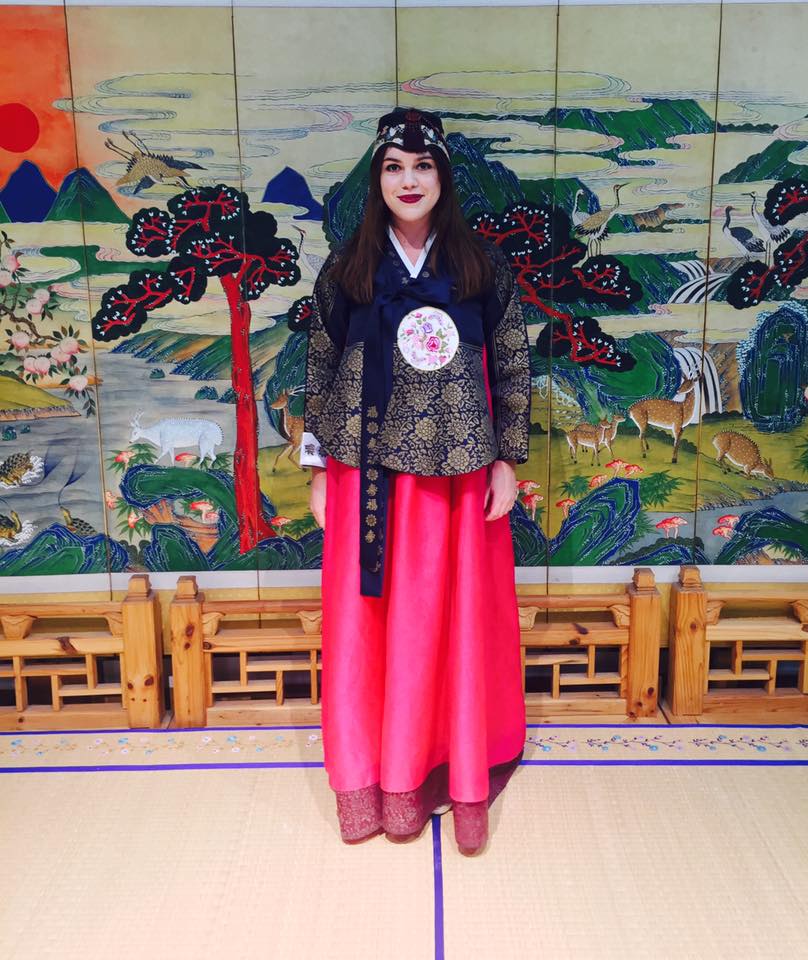
TravelBud’s Grace Martens trying on traditional hanboks while teaching in South Korea.
Grace is loads of fun to chat to and she injects her unique brand of quirkiness into everything she does, something you’ll see plenty of in this interview! Plus, this will give you a great sneak peek into what it’s like to plunge yourself into the unknown!
Interested in Teaching English in South Korea? We’ll send you more info!
Nick (N): Grace, tell us a little about where you’re from.
Grace (G): I’m from a pretty little coastal town, famous for its whales called Hermanus, in South Africa, its about an hour and a half from Cape Town.
N: When did you teach in South Korea?
G: I went over last year in February and left Korea a year later, at the end of February 2017.
N: So if you started here at TravelBud in June, what did you do between ending your teaching contract and coming home?
G: I got the chance to travel for a month after I was done in K-rizzle. I visited my crazy uncle who lives in Israel and then met two friends of mine in Ireland (one from university back home, and then my best friend that lived in the apartment below me in Korea, from the UK). So I touched down back in SA (much to he relief of my mother, who was waiting with open arms and a bag full of biltong), on 28th of March 2017.
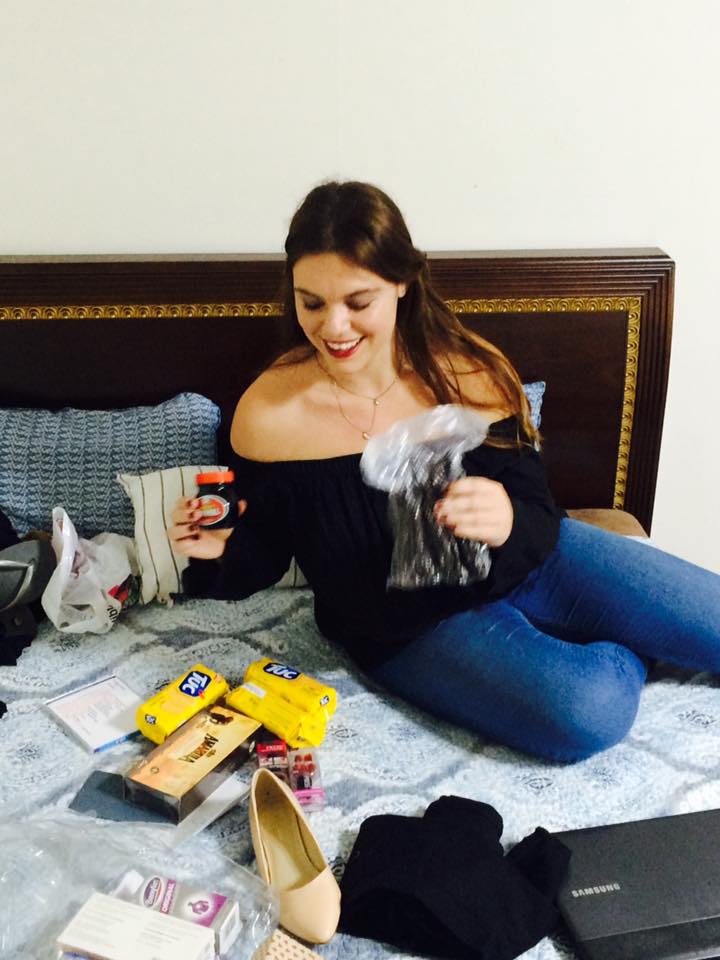
It’s no secret that you miss stuff from home while teaching abroad! Luckily Grace’s mom was more than happy to send a care package full of goodies all the way from sunny South Africa
N: If there’s one thing that will remind a South African home it’s Biltong, haha! Where in South Korea did you teach?
G: I taught at an elementary school in Anseong, a city about an hour and a half outside of Seoul. The amazing thing about the school that I worked at, was that it had a program for North Korean refugee kids, so I got to teach them English, which was a very humbling experience. My co-teacher was also probably the funniest guy I’ve ever met, so that was fun too.
N: That’s incredible, what a unique experience to have! I suspect many people are nervous though about encountering new experiences like this, what were you most nervous about before you left home?
G: I’d never been out of Africa before, so I was kind of nervous about like, everything. But I was also super excited and I knew I was in good hands (shoutout to TravelBud). I think my biggest worry was being lonely and not finding friends (which I laugh about now).

No matter where in the world you work, payday is always a special day! Grace absolutely loved traditional Korean barbecue and payday was the perfect excuse to pig out on the best that ‘k-rizzle’ had to offer. Her word, not mine. 😉
N: Yeah, I don’t think you’d ever have trouble making new friends! What was it like when you arrived in the country though, like was your first day pretty scary?
G: I was happy to finally get to Korea after journeying for 26 hours. So once I arrived, I had two guys come and meet me, they had a little board with my name on and everything (I’ve always wanted that to happen. Makes one feel important haha). They welcomed me, gave me my sim card and I hopped on the bus that was heading to orientation. We got put into our rooms and met our roommates (mine was a lovely girl from Georgia). That night we had supper at orientation, my first encounter with Korean food, and mingled with some other participants. Then that jetlag kicked in and I went to bed pretty early.
N: Sounds like it was at least a fun first day! What was the accommodation like that they put you in while you taught though?
G: I had a studio apartment. It had a little enclosed balcony and a separate bathroom (with that funny little nozzle you use as a shower haha). It came with a double bed, a TV, a table and a fridge (later on in the year, my friend and I found a couch someone had left to be thrown away on the side of the road, and we carried it home and added it to the existing inventory of furniture #goodtimes). My apartment block was only 4 stories, so not those huge officetels some people lived in, and there were 8 other foreigners living in the block so that was cool.
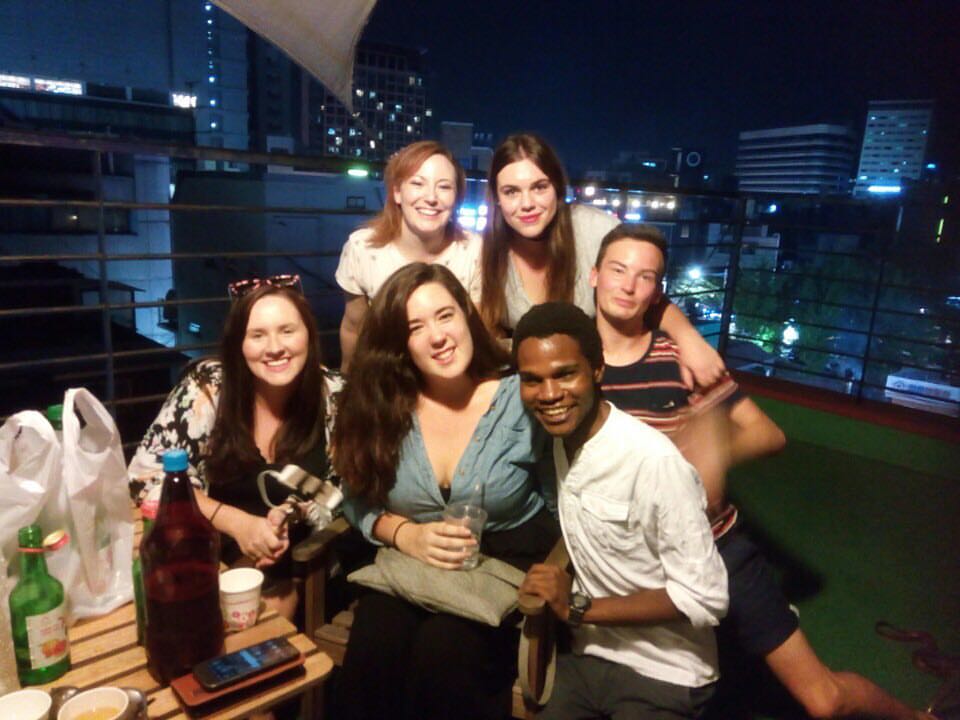
One of the great things about living in a foreign country is that you get to make a lot of friends real quickly. All the expats are in the same situation as you and you all look out for each other! Oh and there aint no partying harder than a Korean party!
N: That sounds comfy enough and nice that you had other expats in the same building. Let’s talk about the job, I believe you taught at a public school, what was a typical day all about? I think this is something everyone is dying to know!
G: I’d wake up, have a quick coffee, catch the bus for the 20 minute commute. School starts at 9. I’d have about 4-6 classes a day. From 9-2pm I had normal classes that my co-teacher taught alongside me. We’d have school lunch at 12:10 till 1 in the cafeteria. Then from 3 till 4:30 was when I had any after school classes, those I took alone and had the freedom to come up with themes. Then at 4:40 pm I’d head home.
N: That sounds quite busy, even if it isn’t a super long day, also a little different to those teaching at private language centers where everything happens a bit later in the day and on weekends. What did you find to be the hardest thing about teaching in Korea?
G: I think communicating with the kids, not during class time (because my co-teacher could translate then). It was more over lunch or on field-trips, I’d really want to say something to them, and I could see they really wanted to talk to me but I didn’t know enough Korean and they didn’t know enough English. So sometimes they’d come to my desk and we’d chat on translate. It worked okay, but you can’t ever really get to know them properly, as I would have liked.
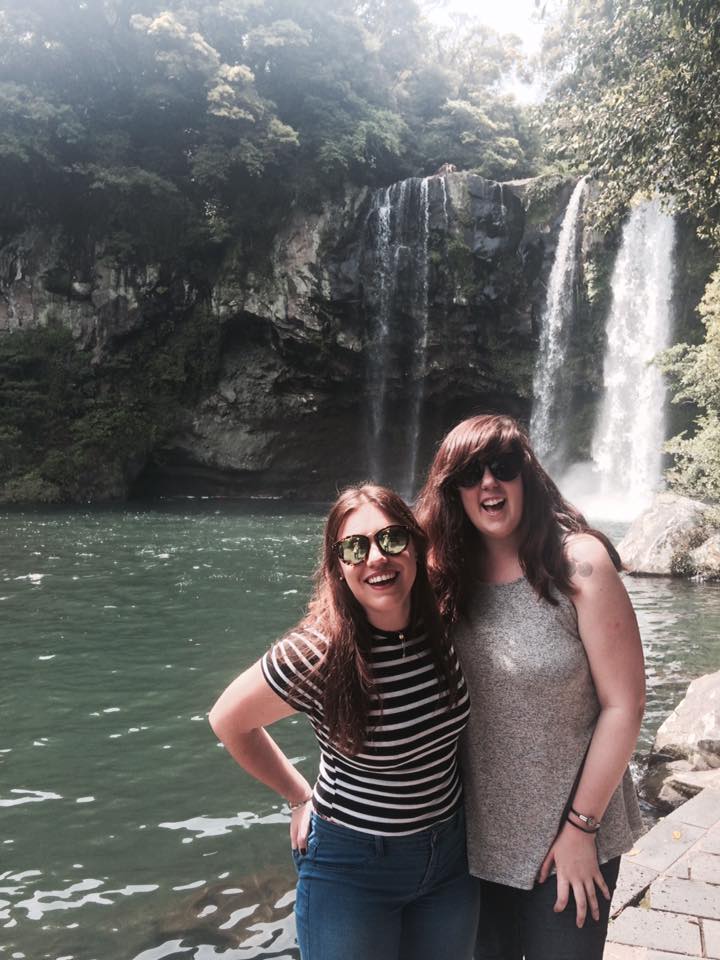
Korea is not all about cold winters and city life, down South is Jeju Island and it makes for a great escape in your time off!
N: That must be a little frustrating, but I know you enjoy a challenge so I’m sure you made it work! How about what you enjoyed most?
G: It’s sounds cliché, but the kids really were great fun. There’d always be some kind of antics on the go, it’d be a normal class and then Sunwoo would be rocking on his chair and fall off and we’d all just laugh for the rest of class. The textbooks are very basic and sometimes I could see the kids weren’t feeling it, so I spoke to my co-teacher and I had the freedom to use the content of the lesson and just adapt it and use my own games. That, and Seoul was such a cool city, hustling and bustling. And when you’re overseas, your friends really do become like family because you’re all far away from home. I made lifelong friends. I don’t know when I’ll see them again, and saying goodbye hurt, but I expect them all to be at my wedding one day or something.
N: Nothing like all facing a challenge together to bring everyone closer! Now a question about safety, did you ever feel unsafe living there?
G: Never. Because of their collectivist culture, they never steal, it’s like a cardinal sin. So my stuff was always safe (which was pretty refreshing coming from SA) and I was safe too. I felt comfortable walking around alone, even at night.

With great pay, paid leave, free accommodation and flight reimbursement, teaching English in South Korea offers a lot to work with if you’re wanting to travel more. Grace got to explore the tropical beaches of Cambodia and Thailand while she worked abroad.
N: Now when anyone thinks of South Korea, they immediately think of their angry neighbor. What were attitudes like about North Korea and their threats of attack on the South?
G: The American military was present and we did have precautionary civil defense drills. But my fellow Korean teachers always said they aren’t worried in the slightest and it really is not an imminent threat. North Korea relies heavily on South Korea for their own economics, especially for food. The danger of North Korea isn’t really towards South Korea, it’s aimed at other places. The South Koreans said North Korea always makes rumblings at the time of their election, but it means nothing. They actually laugh about it.
N: Well that’s a huge relief! So speaking of neighbors, did you get to do any traveling while you worked in Korea?
G: Internally I traveled to Jeju Island, Busan, Jindo (for the sea-parting festival), the DMZ, and often went to Seoul. And we went on a teacher-away weekend to Muju county (skiing). While I was in Korea, I used my vacay time to go to Thailand and to Cambodia.
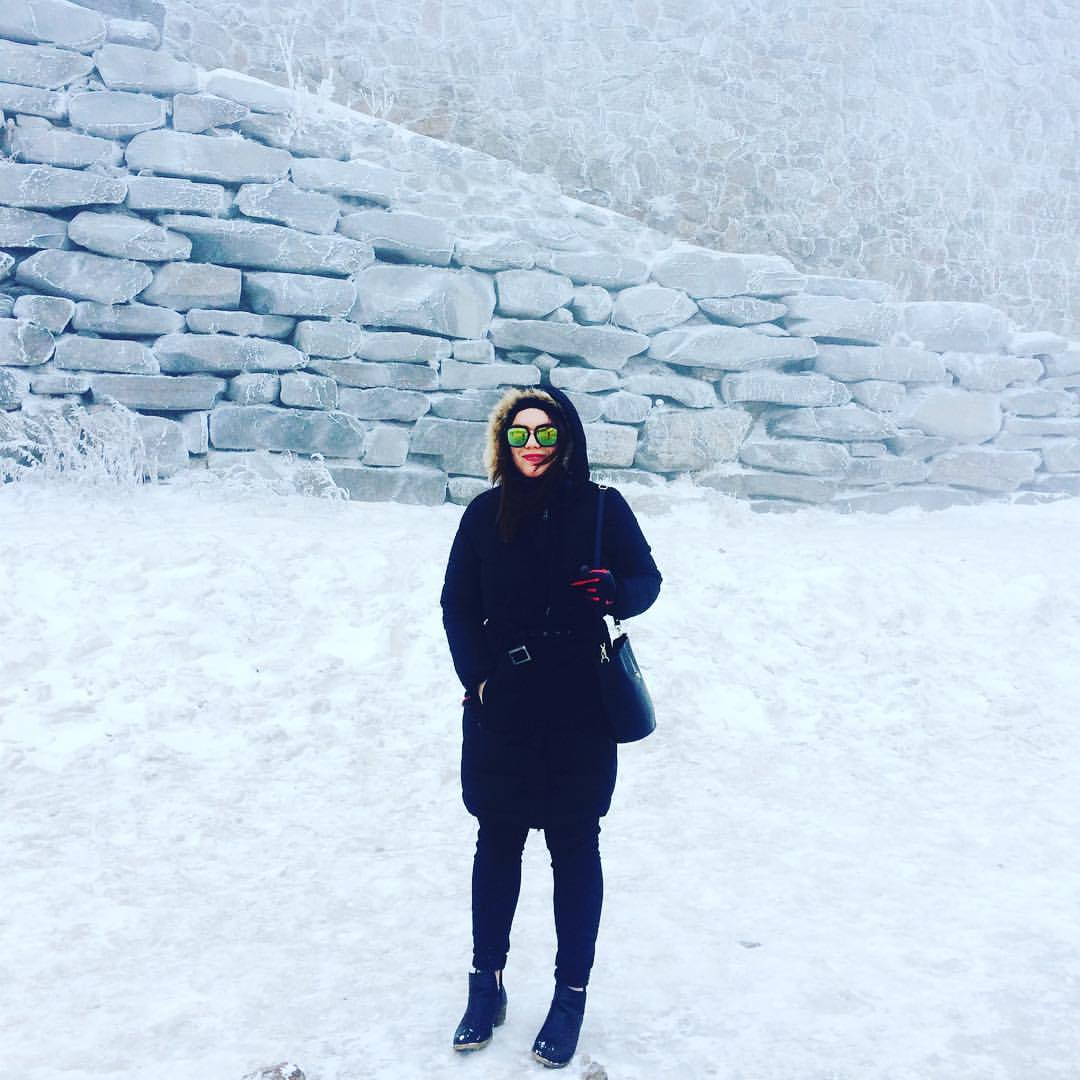
Korean winters can be cold! Luckily there’s no end to the supply of delicious, hot and spicy food plus plenty of Soju (Korean rice wine) to keep you warm!
N: That’s a fair bit of traveling for just one year and a full-time job, impressive! So, with all those opportunities, I have to ask, what made you want to come home?
G: I thoroughly enjoyed Korea and I am so glad I did it. I think it got me thinking about the idea of living abroad, and I wanted to see where else I could go. I made some plans to live in Europe, but visas were a struggle from Korea, so I ended up just deciding to come home after my travels, take a breather and then an amazing job came up, right here at home! I loved teaching, but I know it’s not my life-long vocation and wanted to try something new.
N: Sounds like it was a great doorway to a life in the travel business and it’s great that you fit in so well. I know that South Korea is super different to anything in any western country, so are their any personality types this experience won’t suit?
G: With the orientations (both online to accompany our TESOL course, and when you get there), you get warned that there will be culture shock. And that’s normal. But nothing can truly prepare you for how different it is to life in the West. There will be hard days, weird foods (live octopus was my weirdest), and a language like we’ve never heard before. You have to be someone that keeps an open mind and just rolls with it. I don’t think people that are very highly strung will do well, because sometimes because of the language barrier they don’t always communicate all the details fully (I went on a fieldtrip and just got on the bus and didn’t know where we were going till we got there haha). But there is still a lot of structure in daily classes, so being super laid back with beach bum vibes also won’t work there either. I think you also need to be quite savvy and independent as a person, because you can’t just ask for directions and get everything in English. There will be times where you make mistakes and have to think for yourself (I took the wrong bus once and ended up in the wrong city. But ya live, ya learn!). The culture also has a lot of intricacies, so being culturally aware and being able to adapt is key. You can’t expect it to be like home and be upset when you get a weird fish soup for lunch and not a pizza.
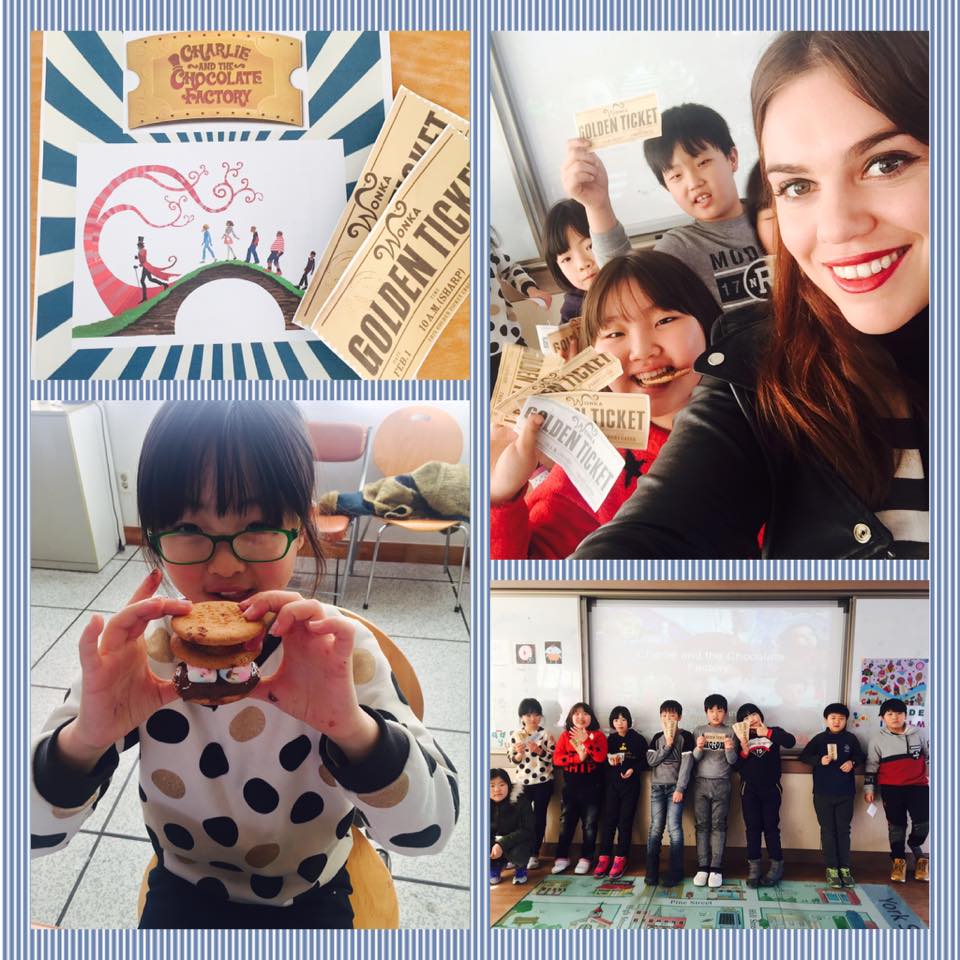
While communicating can be difficult with your students sometimes, you often get by with some creative gestures and Google translate! Luckily there was plenty of leeway with Grace’s school to get creative with her lesson plans!
N: Well explained Grace! So, in closing, do you have any advice for someone considering this experience who’s a little on the nervous side?
G: Because of my above-mentioned ramble, I’d say GO, experience things you wouldn’t normally experience, eat the weird stuff, let yourself have a cry on the hard days, but above all, always keep an open mind. It’s normal to have culture shock, it’s normal to miss home, but your happiness ultimately comes down to you and how you perceive and handle things. Try see the positive and beautiful things, not the things you can’t understand. Oh, and take a human-sized towel (they use tiny hand towels to dry themselves and you can’t really buy them there, just a little nugget of wisdom).
N: Thanks Grace, that was super insightful and I’m sure it will be really helpful to anyone considering going over to teach English in South Korea.
Interested in Teaching English in South Korea? We’ll send you more info!


How do I apply to teach in South Korea English am a degree holder.
Hi Celeste, just click the Enquire Now button on our website, or click here: https://travelbud.com/quick-inquiry/
This will kick off the application process and get you the info you need to make the right decision on your teach abroad trip.